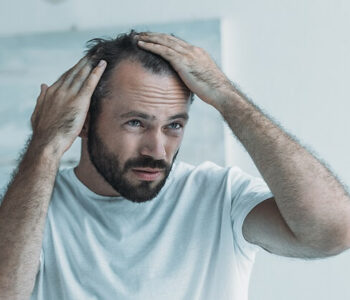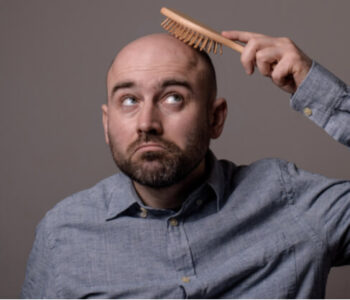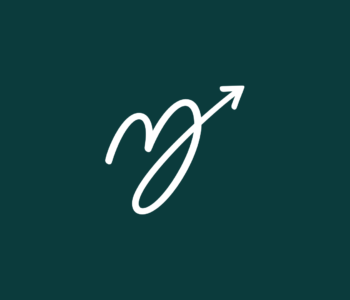In 30 seconds…
With a number of sites online mentioning it, there’s no surprise that men are starting to ask the question: can you use argan oil for hair loss treatment? Unfortunately, though, there is no evidence that it works – despite what some people are saying.
Argan oil is a plant oil that’s extracted from the kernels of the fruit of the argan tree – widespread in Morocco. The oil is commonly used in Moroccan cooking and it has become increasingly popular in hair-care products and cosmetics – mainly due to antioxidant properties and high Vitamin E.
Yet, you can’t rely on argan oil to treat hair loss. But that’s okay – because medicines like Finasteride and Minoxidil are safe, effective, and affordable.
Argan Oil and Male Pattern Baldness
In the midst of the surge in popularity of natural remedies and forgotten recipes, people have started paying attention to argan oil.
Extracted from the heart of the fruits of the Moroccan argan tree, argan oil has been an ingredient in north African cooking for centuries – if not longer. But now, rather than drizzling it on bread or couscous, many across the world are starting to take an interest in the plant’s therapeutic potential.
That’s meant that the oil now features in hair conditioners and styling products, for example – as well as in skincare products. But what about using argan oil for hair loss? Some websites are swearing by it. However, the evidence that it stimulates hair growth is far from convincing.
What are the Benefits of Argan Oil?
As we said, argan oil is increasingly known for the medical, therapeutic, and cosmetic benefits that it can offer. For exactly these reasons, the oil has come to be known by some as ‘liquid gold’.
So, what exactly are these famed benefits? Well, now’s the time to find out.
Argan Oil is High in Essential Nutrients
Firstly, argan oil is known to be high in essential nutrients – including essential fatty acids like linoleic acid. This is a type of omega-6 acid (related to the more famous omega-3) known by some for its health benefits.
These include supporting heart health, reducing cholesterol, and improving blood pressure and insulin sensitivity. However, this tends to be relevant only when it’s taken in your diet – rather than rubbed into your hair or skin. Meanwhile, you can get linoleic acid from other sources, like nuts, seeds, and vegetable oils.
It is Anti-Inflammatory and Antioxidant
Argan oil is often recognised for its antioxidant and anti-inflammatory properties too. This is largely down to its high content of Vitamin E – and to the presence of CoQ10 and melatonin.
These compounds combined have been shown to reduce inflammation caused by toxins in the liver – and appear to have an effect on skin inflammation.
Significantly, though, the high Vitamin E content of argan oil may protect against free radicals which can contribute to the generation of cancers.
It May Help Your Skin
Argan oil has been said to help psoriasis, acne, and sunburn – and to counter dryness of skin through its work as a moisturiser.
This seems logical. Some scientific studies, for example, have found evidence that argan does improve your skin’s ability to retain its hydration. Meanwhile, as we mentioned above, the oil’s anti-inflammatory properties may help to soothe the itchiness and irritation associated with inflammation.
However, more research is needed before any conclusive answer can be given.
And Your Hair?
Finally, argan oil is often included in hair products, including argan oil shampoo, hair masks, and conditioners.
These tend to be sold as products to reduce frizz and dry hair and to boost healthy hair. It is thought that argan oil can help to stop hair breakages and split ends – as well as to reduce things like dandruff.
However, there are actually no scientific studies investigating the use of argan oil products explicitly for the hair – although similar products have shown promising signs. Meanwhile, problems with scalp health are just assumed to be solved by argan oil – due to the product’s possible use on your skin.
Argan Oil for Hair Loss?
And so to the big question: can argan oil help hair loss? Unfortunately, there is no evidence that argan oil can help to treat hair loss caused by male pattern baldness (MPB).
Why? MPB – or androgenetic alopecia – is powered by a hormone, dihydrotestosterone (DHT), that is produced in the male body and that causes sensitive hair follicles to shrink, weaken, and stop producing hair. Unfortunately, the majority of us have follicles that are sensitive – which is why over 70% of men in their 70s will experience MPB.
However, there is no evidence at all to suggest that argan oil can reverse the effect of DHT – or stop it from damaging your follicles in the first place. And, as a result, it probably won’t cause new hair to grow where there is no hair already.
What Treatments Do Work for Hair Loss?
If argan oil doesn’t work for hair loss, what can you use? Well, the two best hair products – that are known to tackle MPB safely and effectively – are Finasteride and Minoxidil.
Finasteride is a medication that works to stop DHT, the root cause of MPB. As we said, DHT is produced by your body, during the process that breaks down that more familiar hormone, testosterone. And it’s in this process that Finasteride intervenes.
Taken as a pill, Finasteride inhibits the action of the enzyme known as 5-alpha reductase, which is crucial to the conversion of testosterone into DHT. As a result, less DHT is produced, meaning that there is much less in your system to ultimately damage your follicles.
Minoxidil is your second option. A topical medication, Minoxidil is known as a vasodilator – meaning that it widens the blood vessels in the area to which it is applied. As a result, more blood, nutrients, and oxygen reach your hair follicles – providing the resources they need to stay strong and healthy, and to keep producing hair.
Finasteride is known to support hair regrowth in 9/10 of men who use it. Minoxidil’s success rate is over two-thirds. When these science-backed options are available to you, there is no need to use argan oil for hair loss at all.
Key Takeaways: Argan Oil for Hair Loss
Want to use argan oil for hair loss? We wouldn’t. While the Moroccan tree oil may have a reputation for providing health benefits, they aren’t always backed by science. And there’s no evidence at all that argan oil can help with MPB.
Instead, try Finasteride and Minoxidil – two medications that we know to work. When used together, they promote regrowth in the vast majority of cases.












